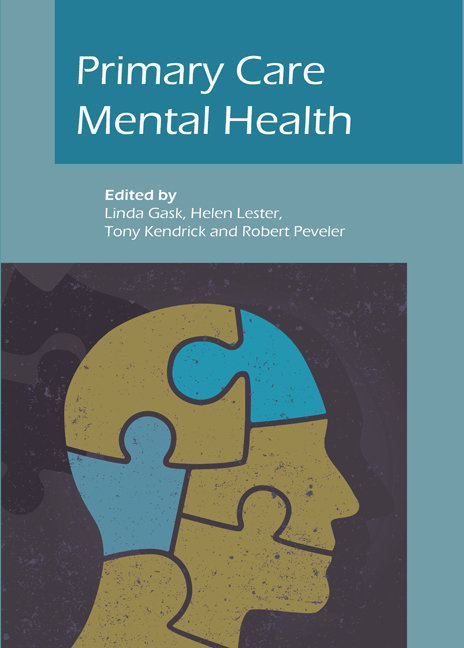Book contents
- Frontmatter
- Contents
- List of figures, tables and boxes
- List of contributors
- Preface
- Part I Conceptual basis and overarching themes
- Part II Clinical issues
- Part III Policy and practice
- Part IV Reflective practice
- 29 Teaching and learning about mental health
- 30 Undertaking mental health research in primary care
- 31 Individual treatment decisions: guidelines and clinical judgement
- 32 Self and others: the mental healthcare of the practitioner
- Epilogue
30 - Undertaking mental health research in primary care
from Part IV - Reflective practice
- Frontmatter
- Contents
- List of figures, tables and boxes
- List of contributors
- Preface
- Part I Conceptual basis and overarching themes
- Part II Clinical issues
- Part III Policy and practice
- Part IV Reflective practice
- 29 Teaching and learning about mental health
- 30 Undertaking mental health research in primary care
- 31 Individual treatment decisions: guidelines and clinical judgement
- 32 Self and others: the mental healthcare of the practitioner
- Epilogue
Summary
The need for primary care research
In countries with well-developed primary care services, the large majority of patient care is undertaken there. In the UK's National Health Service (NHS), more than 90% of patient contacts are in general practice. Differences in the range of severity and complexity of problems between primary care and secondary care mean that it is often not possible to extrapolate evidence from research findings in secondary care directly to the primary care context (this is dealt with in more detail in Chapter 31). Research therefore needs to be undertaken in primary care to be directly applicable, and it is in the best interests of primary care practitioners to contribute to research in whatever ways they can, to assist in the development of the evidence base for their own clinical practice.
Another reason why research has to be undertaken in primary care is that the views of primary care practitioners, patients, carers and other stakeholders, such as health service managers, are among the key determinants of what services can be and should be provided.
Factors affecting practitioner involvement
A systematic review of 78 studies relating to problems of recruitment to randomised controlled trials in a variety of settings, which included primary care and community health services, was carried out in order to identify the most common barriers to participation by clinicians (Ross et al, 1999). They are listed in Box 30.1.
Moore & Smith (2007) carried out semi-structured interviews with 11 general practitioners (GPs) to get more in-depth insight into how practice decisions to participate in research were made and the key influences on the decision-making process. They found that practices had no formal process of assessing requests to participate in research studies, but decided in an ad hoc way, on a study-by-study basis. The presentation of the research proposal was key: practitioners valued a personal approach from another GP who could ‘champion’ the project from a GP perspective. They were swayed by interesting and relevant research questions, where there was likely to be direct benefit to patients involved in the study. They demanded clarity about the time commitment and workload involved, and what funding would be provided to the practice to compensate them for their involvement. They wanted the research team to deal with all bureaucratic barriers on behalf of the practice, and to feed back on the progress of the study and its findings.
- Type
- Chapter
- Information
- Primary Care Mental Health , pp. 439 - 452Publisher: Royal College of PsychiatristsFirst published in: 2017



